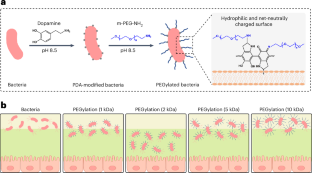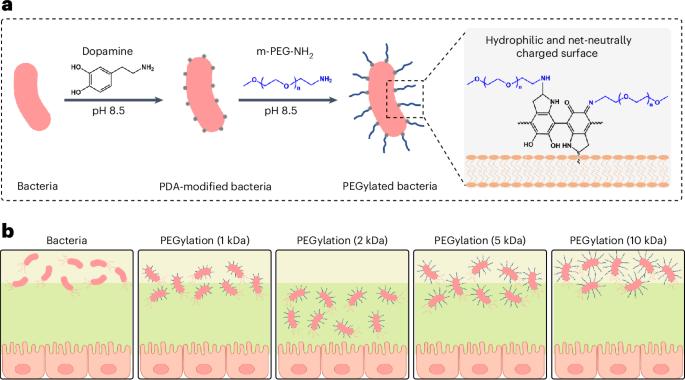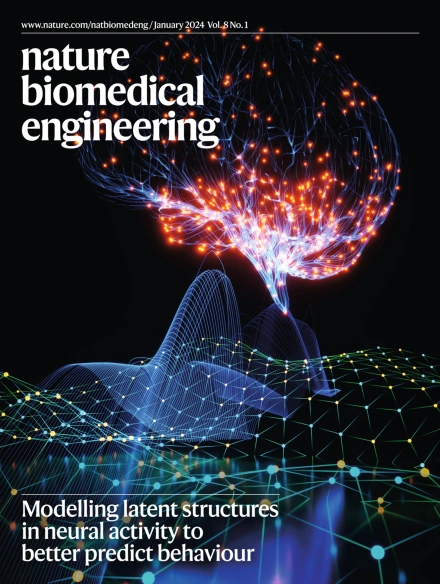聚乙二醇化细菌可穿透粘液,增强肠道粘膜屏障。
IF 26.8
1区 医学
Q1 ENGINEERING, BIOMEDICAL
引用次数: 0
摘要
我们开发了一种多功能方法,通过在细菌表面涂上聚乙二醇(PEG),促进共生细菌穿透肠粘膜。通过 PEG 化实现的渗透促进了细菌在肠粘膜屏障粘液层的优先定位,从而加强了这一屏障。本文章由计算机程序翻译,如有差异,请以英文原文为准。


PEGylated bacteria penetrate mucus and strengthen the gut mucosal barrier
We have developed a versatile approach for promoting the penetration of commensal bacteria into the intestinal mucosa, by coating the bacterial surface with poly(ethylene glycol) (PEG). PEGylation-enabled penetration facilitated the preferential localization of bacteria at the mucus layer of the intestinal mucosal barrier, thereby reinforcing this barrier.
求助全文
通过发布文献求助,成功后即可免费获取论文全文。
去求助
来源期刊

Nature Biomedical Engineering
Medicine-Medicine (miscellaneous)
CiteScore
45.30
自引率
1.10%
发文量
138
期刊介绍:
Nature Biomedical Engineering is an online-only monthly journal that was launched in January 2017. It aims to publish original research, reviews, and commentary focusing on applied biomedicine and health technology. The journal targets a diverse audience, including life scientists who are involved in developing experimental or computational systems and methods to enhance our understanding of human physiology. It also covers biomedical researchers and engineers who are engaged in designing or optimizing therapies, assays, devices, or procedures for diagnosing or treating diseases. Additionally, clinicians, who make use of research outputs to evaluate patient health or administer therapy in various clinical settings and healthcare contexts, are also part of the target audience.
 求助内容:
求助内容: 应助结果提醒方式:
应助结果提醒方式:


